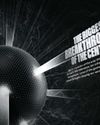
The cosmetic industry is big business. In 2023, the European market was worth €96 billion, with the UK being the fourth-biggest consumer, spending €11 billion, after Italy, France and the leader, Germany. More and more of us, both men and women, are routinely using cosmetics and the trend shows no sign of slowing down anytime soon. But what are we actually putting on our hair and skin, and could it potentially cause us harm? The ingredients used in cosmetics are tightly regulated in the European Union and many other areas. Only approved ingredients can be used and this list is regularly updated based on emerging scientific evidence.
The process for banning an ingredient from cosmetics in Europe is that the European Chemicals Agency (ECHA), which is responsible for the regulation of chemicals, first files an intention to restrict notice.
This is followed by a call for evidence, in which any interested person or group submits data and evidence for the safety or otherwise of the chemical in question.
This evidence is then evaluated by the various scientific committees. Then a recommendation is made and, finally, a decision is agreed upon by the European Commission. The process can take several years.
As companies are warned when changes in regulations are coming, however, they're able to voluntarily reduce and replace the substances that will be restricted in the future. This was seen, for example, with the plastic microbeads that used to be found in toothpastes and facial scrubs. Companies began phasing them out even before the ban on microbeads came into full effect in 2018, as the industry knew that microbeads would soon be banned, so products containing them were rapidly removed from store shelves.
Bu hikaye BBC Science Focus dergisinin January 2025 sayısından alınmıştır.
Start your 7-day Magzter GOLD free trial to access thousands of curated premium stories, and 9,000+ magazines and newspapers.
Already a subscriber ? Giriş Yap
Bu hikaye BBC Science Focus dergisinin January 2025 sayısından alınmıştır.
Start your 7-day Magzter GOLD free trial to access thousands of curated premium stories, and 9,000+ magazines and newspapers.
Already a subscriber? Giriş Yap

THE WORST IDEAS OF THE 21ST CENTURY
NOT ALL IDEAS CAN BE HITS. ALONGSIDE GROUND-BREAKING INNOVATIONS, 21ST-CENTURY SCIENTISTS HAVE HELMED THEIR SHARE OF WILD TECH FLOPS, DUBIOUS THEORIES AND OVERHYPED BREAKTHROUGHS. HERE ARE THE BIGGEST TO FORGET

10 IDEAS THAT WILL SHAPE YOUR NEXT 25 YEARS
Predicting the future is considered a fool's game. But it's one many of us like to play.

THE BIGGEST BREAKTHROUGHS OF THE CENTURY
We're a quarter of the way into the new century. To mark this milestone, we asked the UK's top minds to highlight some of the game-changing scientific breakthroughs shaping our world since the year 2000

DO THE SCIENCE COGNITIVE SHUFFLE
Trouble sleeping? A lot on your mind? Use this trick and sedate your synapses

WHAT DETERMINES HOW MANY ABS I CAN GET?
Assuming you're a human being, you have exactly the same number of abs as everybody else: two.

HOW CAN I IDENTIFY MY PSYCHOLOGICAL BLIND SPOT?
In the 1950s two American psychologists, Joseph Luft and Harrington Ingham, proposed a way of thinking about psychological blind spots - things you don't know about yourself - that they called the 'Johari Window' (the term is a combination of their first names).

How can I change my personality?
Want to become more confident, extroverted or assertive? Science shows that with a few simple changes, you can unlock your best self

Could your cosmetics be harming your health?
Cosmetic companies are phasing out microplastics and so-called 'forever chemicals' to help protect consumers.

extraterrestrial US Congress is talking about activity again. Is the truth really out there?
Despite several testimonies, the question remains frustratingly unanswered

Map of 100 million human body cells revealed
Over three dozen new studies mark significant milestone towards complete Human Cell Atlas